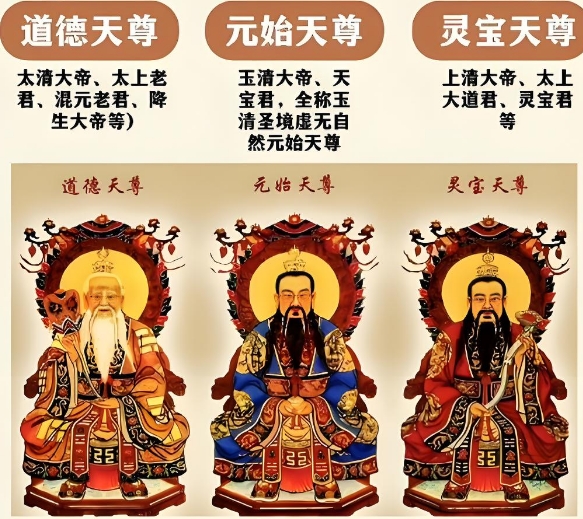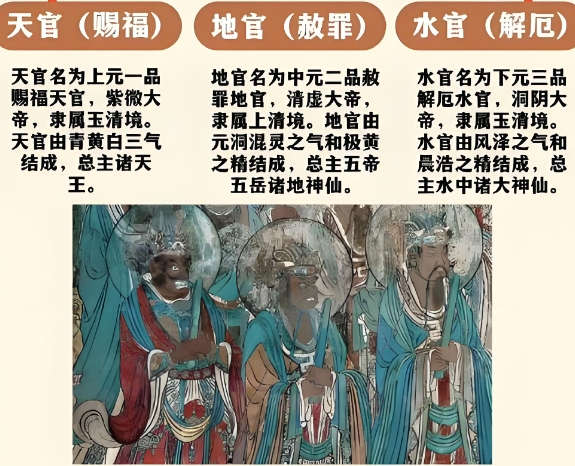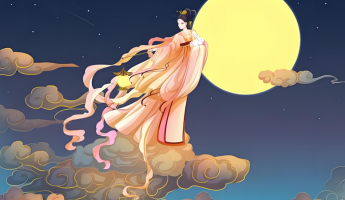Taoism is one of the indigenous religions in China, with a long history and profound cultural heritage. Taoism emphasizes harmonious coexistence with nature, achieving longevity and entering a fairyland through spiritual practice. In the Taoist cosmology, the immortal system holds an extremely important position. In this article, we will delve into the immortal system of Taoism, understand its development context, main immortal roles, and the cultural meanings they represent.
1、 The Origin and Development of the Taoist Immortal System
The concept of immortals in Taoism originated from ancient Chinese observations of natural phenomena and philosophical reflections on life. As early as the pre Qin period, ancient philosophers such as Laozi and Zhuangzi proposed the idea of “governing by inaction”. They believed that “Dao” was the fundamental law of the universe and the source of all things in nature that exist and change. In the pursuit of immortality and liberation from the cycle of life and death, people began to construct preliminary images of immortals.
In the Eastern Han Dynasty, the systematization of Taoism gradually formed, complementing classics such as the Tao Te Ching and Zhuangzi. Especially in the Jiangnan region, with the introduction and development of Taoism, many local beliefs and folklore have also influenced the construction of the immortal system, resulting in the emergence of various local immortals and cultural symbols. By the Tang Dynasty, Taoism gradually became the official religion of the country, and the system of immortals became richer and more complete.

2、 The main immortals of Taoism
The immortal system of Taoism is a vast and complex system that includes many different deities. Not only are there famous celestial deities, but there are also local deities worshipped in various regions. Here are some significant immortal characters in Taoism.
The Jade Emperor
The Jade Emperor is revered as the “Heavenly Emperor” and is the highest deity in the Taoist universe. He dominates the heavens and is responsible for managing the affairs of numerous deities and humans. In Taoist beliefs, the Jade Emperor is regarded as the supreme authority, and any ritual and prayer activities cannot be separated from his protection. His image is usually dressed in a magnificent imperial robe, with a phoenix crown on his head and holding a jade ruyi, symbolizing authority and wealth.
Guanyin Bodhisattva
Although Guanyin Bodhisattva originated in Buddhism, it also holds an important position in Taoist beliefs. Guanyin Bodhisattva is known for her compassion and wisdom, and is regarded as a savior by believers. She often provides assistance and gives hope to people in difficult situations. The interpretation of Guanyin in Taoism and Buddhism is intertwined, forming a unique cultural phenomenon. Many Taoist believers pray to Guanyin Bodhisattva for peace and health.
Your Majesty
Tai Shang Lao Jun is one of the most important deities in Taoism and is regarded as one of the founders of Taoism. He is the incarnation of Laozi, symbolizing the philosophical ideas and wisdom of Taoism. He is often depicted as an old man with white hair, riding a green ox and holding the Taoist classic “Tao Te Ching”. Due to his profound wisdom, believers often seek his advice on the principles of life and philosophy of dealing with people.
Eight Immortals
The Eight Immortals are important representatives of Taoism, and each immortal has a distinct and personalized image, including Lv Dongbin, Li Bai, Zhang Guolao, Han Xiangzi, He Xianggu, Tie Guai Li, Lan Caihe, and Cao Guojiu. They are not only symbols of Taoist beliefs, but also often appear in folk stories and works of art. Each Eight Immortals has their own legend and merits, symbolizing different wishes and life philosophies, inspiring people to pursue ideals and happiness.

3、 The Influence and Inheritance of Taoist Culture
The Taoist immortal system is not only a manifestation of religious beliefs, but also an important component of Chinese culture. The influence of Taoism has permeated into multiple fields such as literature, art, philosophy, and medicine, injecting profound spiritual connotations into traditional Chinese culture.
Impact on literary creation
The image of immortals in Taoism widely appears in poetry and novels, influencing the creation of literati. Ancient poets such as Li Bai and Du Fu created a large number of poems on the theme of immortals, demonstrating their yearning for fairyland, longevity, and self transcendence. The spread of stories and legends about immortals in literature has enhanced the popularization of Taoist culture, and has also gained deep-rooted recognition among ordinary people.
- Inspiration for artistic creation
The immortal system of Taoism has also profoundly influenced traditional Chinese painting and sculpture art. Many famous landscape paintings express people’s pursuit of nature and Taoist philosophy by depicting fairyland, clouds, and water beauty. The immortal statues in sculpture art not only reflect Taoist beliefs, but also showcase the superb skills of ancient craftsmen, becoming an important carrier of cultural inheritance.
- Philosophical Exploration of Taoist Thought
The philosophical ideas of Taoism, such as governing by inaction and the way of nature, have profoundly influenced philosophical research in China, especially providing important perspectives in dealing with the relationships between humans and nature, and humans and society. Laozi’s Tao Te Ching is considered one of the classics of Eastern philosophy, and its application in real society has promoted people’s reflection and understanding of life.
- Medicine and Health Culture
The health preservation theory and internal alchemy practices of Taoism have played an important role in the formation and development of traditional Chinese medicine. The emphasis of Taoism on “conforming to nature and cultivating oneself” has deeply penetrated people’s hearts, and many Taoists achieve the goal of longevity through practice and practice. This not only enriched Taoist culture, but also had a profound impact on China’s health preservation culture.
4、 Summary
The immortal system of Taoism is a world full of mystery and rich connotations, which includes both lofty deities and folk beliefs and customs. Through in-depth exploration of the Taoist immortal system, we not only understand the beliefs and cultural characteristics of Taoism itself, but also feel the vastness and profundity of traditional Chinese culture. The story of Taoism and immortals flows through the long river of history and continues to influence our lives and thoughts to this day. In the fast-paced modern life, returning to nature and pursuing inner peace are also eternal inspirations brought to us by Taoism.



